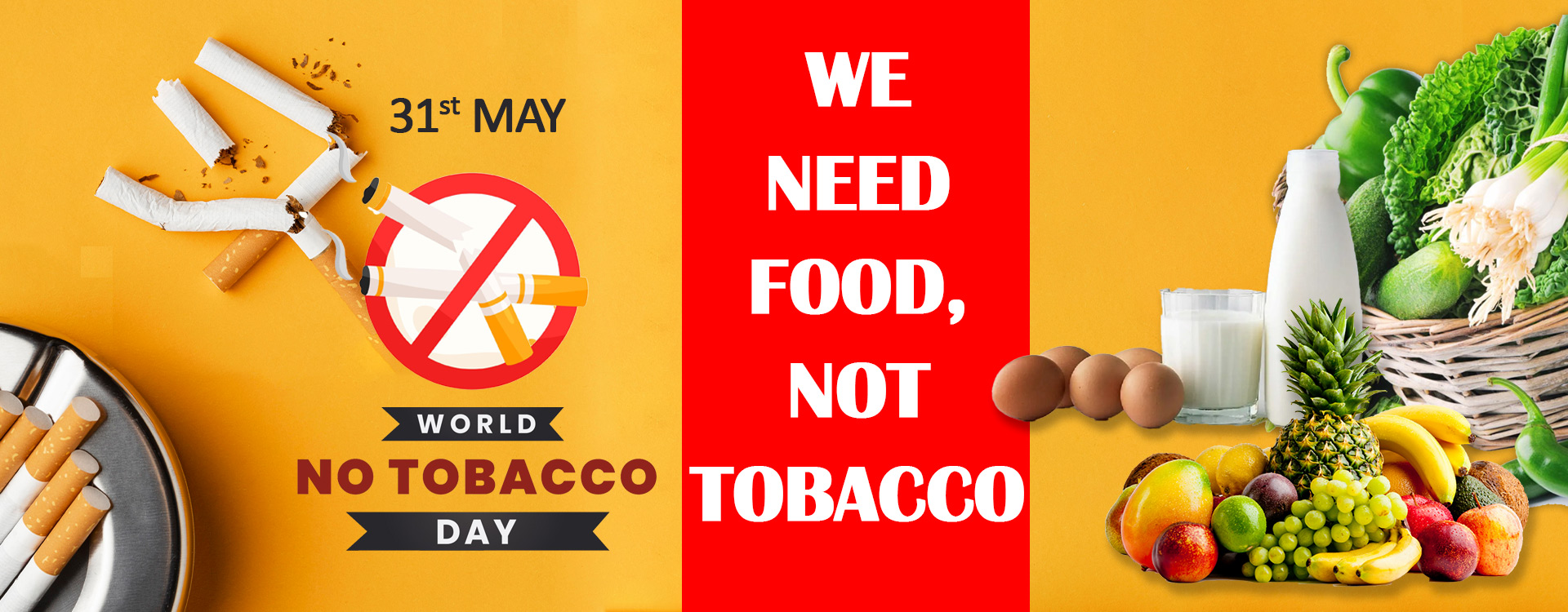


On 31 May 2023, WHO and public health champions around the world will come together to celebrate World No Tobacco Day (WNTD). This year’s theme is “We need food, not tobacco”. The 2023 global campaign aims to raise awareness about alternative crop production and marketing opportunities for tobacco farmers and encourage them to grow sustainable, nutritious crops. It will also aim to expose the tobacco industry’s efforts to interfere with attempts to substitute tobacco growing with sustainable crops, thereby contributing to the global food crisis.
The growing food crisis is driven by conflicts and wars, climatic shocks, and the economic and social impacts of the COVID-19 pandemic. Structural causes like the choice of crop also have an impact, and a look into tobacco growing reveals how it contributes to increased food insecurity:
Any profits to be gained from tobacco as a cash crop may not offset the damage done to sustainable food production in low- and middle-income countries. Against this background, there is an urgent need to take legal measures to reduce tobacco growing and help farmers to move into the production of alternative food crops.
The tobacco industry often touts itself as an advocate for the livelihood of tobacco farmers. This is a far cry from the truth. The intensive handling of insecticides and toxic chemicals during the cultivation of tobacco contributes to many farmers and their families suffering from ill health. Further, unfair contractual arrangements with tobacco companies keep farmers impoverished, and the child labour that is often woven into tobacco cultivation interferes with the right to education and is a violation of human rights.
Nine of the 10 largest tobacco cultivators are low- and middle-income countries, and 4 of these are defined as low-income food-deficit countries. Land used to grow tobacco could be more efficiently used to achieve United Nations Sustainable Development Goal 2 – zero hunger.
The 2023 WNTD campaign calls on governments and policy-makers to step up legislation, develop suitable policies and strategies, and enable market conditions for tobacco farmers to shift to growing food crops that would provide them and their families with a better life. The WHO Framework Convention on Tobacco Control offers specific principles and policy options on the promotion of economically viable alternatives for tobacco workers, growers and individual sellers (outlined in Article 17), and on enhancing protection of the environment and the health of people (Article 18). The implementation of these provisions should be strengthened in countries.
Since its inception in 1971, it has been striving towards the goal of providing health for the people of Kerala. It is to the credit of Kerala VHS, that it has been able to maintain constant touch with the grass root level health and social development organizations in Kerala all these years. From 1998 on wards KVHS diversified its involvement in other development areas and now we are the official NGO consultant of many govt. development projects. Kerala VHS has been inconstant touch with the govt. in the formulation of health policies as well as other development interventions.Kerala Voluntary Health Services is a non-profit organization registered under the societies Registration Act. It is federated to the Voluntary Health Association of India (VHAI), New Delhi.